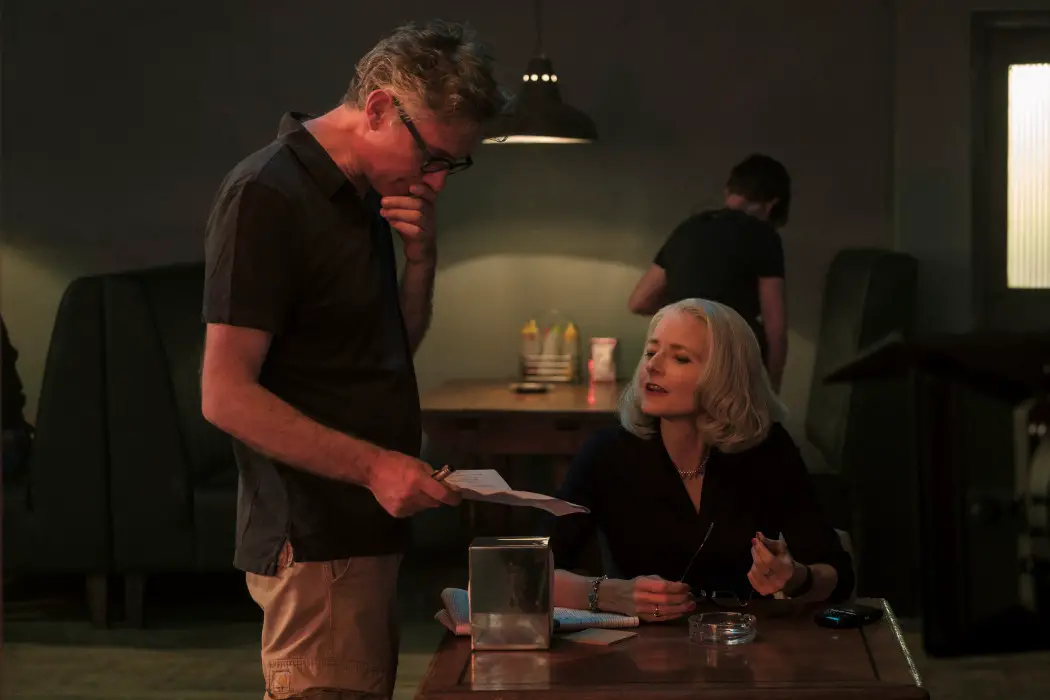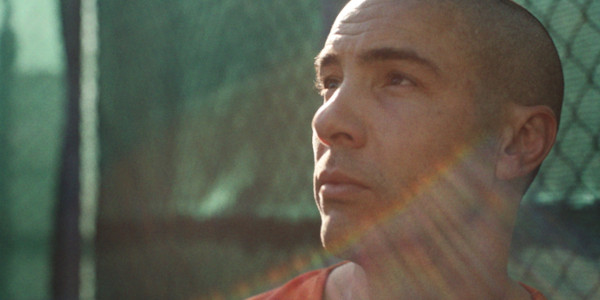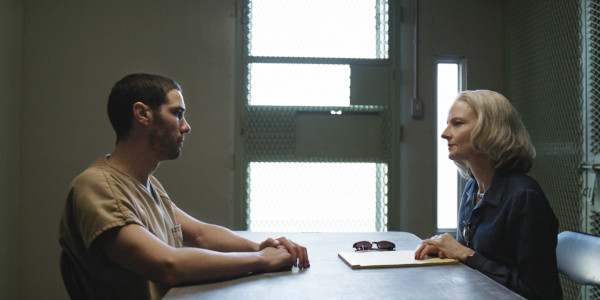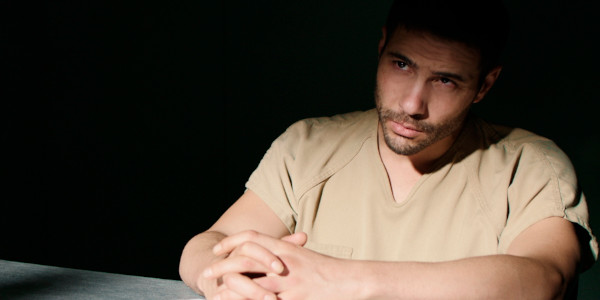Interview With Kevin Macdonald, Director Of THE MAURITANIAN

Luke Parker is an award-winning film critic and columnist based…
Director Kevin Macdonald has transformed the inhumanity of America’s Guantanamo Bay camp into a motion picture banked solely on its antithesis.
The Mauritanian, the two-time Golden Globe-nominated film (with nominations in performances for stars Jodie Foster and Tahar Rahim) follows the legal journey of Mohamedou Ould Slahi, a Muslim man suspected of aiding the 9/11 terrorist attacks who was then incarcerated and interrogated for over a decade without a single charge pressed against him.
In anticipation of the film’s theatrical release on February 12, Film Inquiry spoke to Macdonald about his experiences helming the project, including his collaborations with the on- and off-screen incarnates of Mohamedou, his non-American perspective on the story and its lessons, and his plight to maintain authenticity throughout the production.
This interview has been edited for clarity.
Luke Parker for Film Inquiry: You debated joining this project until you talked to Mohamedou yourself. What happened during that conversation? What convinced you?
Kevin Macdonald: He just was not the person I expected. When someone asks you if you want to talk to a guy who’s been in Guantanamo for 14 years, never charged, who was a victim of the most awful treatment and torture, you think the guy’s going to be so embittered, so angry, so messed up, and the conversation is not going to be a pleasurable thing.
And I get on Skype with him and the first thing he says is, “Hey bro! How you doing?” I realized he talks like a 20-year-old marine guard because that’s who he learned English from. And he’s got this big smile on his face, and he starts telling me funny stories about how he saw my movie The Last King of Scotland when a guard brought it to him, and what he thought about it. Then, we talked about movies. He told me about how he’s watched The Big Lebowski 86 times and knows every word of it.
I was thinking that this was not what I was expecting, and then he starts singing The Black Eyed Peas to me – “Boom Boom Pow” – which a guard introduced to him. He has embraced American culture and it’s the strangest thing. He knows more about American popular culture than I do, by far. He loves so much about America and yet, he has suffered at the hand of America.

More than anything else, I was struck by his commitment to forgiveness and not living with hate. He said, “when I realized I could convert my hate into love and forgiveness, I realized that was a gift to myself because I could feel better.”
He told me a lot of his story the first time we met, and I felt really angry. I had this rising anger inside of me because it was so unfair and so unjust. So I asked him if he was going to sue the American government if he was going to look for compensation, and he just laughed. He said, “no, no, of course not. I don’t want my life to be taken up by lawyers and fighting for the next 20 years. I want to put it in the past and live a life that’s mine.”
And I thought that was just amazing. He’s one of the most remarkable people I’ve ever met, and I knew I wanted to make a movie about this guy – a movie that’s a really difficult story, a painful story, a political story that can be told totally personally. It’s not going to be like all the other movies about the War on Terror, which are about the politics of George Bush’s administration, or about phony, CIA American heroes using torture to get information. It’s going to be about the people and the effects on the person. We were going to make a mainstream movie that had a totally humanized, sympathetic portrayal of a Muslim man at the heart of it. I don’t think there are any of those movies.
I don’t think there are, and a big reason for that is that there’s a great deal of emotion in this country that circle the events of this film. And just as it did in real life – the extent of which we’re still discovering – we see anger override precedent and law in this film. What did you want to make sure American audiences understood about the post-9/11 dynamic and attitude?
Kevin Macdonald: Well, I think Mohamedou says it in that speech at the end of the film, which is almost word-for-word exactly what Mohamedou did say. It’s about fear. America was fearful. And when people are fearful and countries are fearful, they do things they regret, twisting the law to suit their desire for vengeance.
Benedict Cumberbatch’s character says this one thing: “somebody’s got to pay, not just anybody.” That’s the point. Justice is when you get the right person. Vengeance is when you just lash out. Obviously, as a non-American, I’m not making a movie which is about American politics, I’m making a movie that is about human beings. I think they’re all sympathetic characters, Jodie’s and Benedict’s, and they’re on opposite sides of the political spectrum. They’re both decent human beings and when confronted by the reality of what the system is doing around them, they both are full of repulsion. In fact, it’s the Christian, republican character who stands up and says, “this is against my constitutional values. This is against my Christian values. This should not be happening.”
I really loved that about this movie. It’s not the usual, liberal Hollywood thing of “everything who works in the military or is part of the Bush government is evil.” Here’s a guy with such great integrity, and I think he’s truly heroic.
Another essential element of Mohamedou’s story is the torture he endured – and the best way I can describe the film’s depiction of it would be “a fever dream.” How did you decide the ways you were going to visualize these scenes?
Kevin Macdonald: I like that description because that’s kind of what it is. We probably spent more time talking as a team about how we’d those scenes than anything else because it was important to Mohamedou and to me that those scenes be truthful. The dreams of him seeing his mother in the cell, the threats from the guards that his mother’s going to be raped by the inmates, the sexual molestation, the going out in a boat and the fake drowning – that’s all true. It’s all documented from both sides, both from the government side and Mohamedou’s.

But, if you show that stuff in a totally realistic way, your audience is not going to be able to stand it, and they’re going to leave. And so, we decided that we would do this thing and try to make the movie go really subjective at that stage, and go inside his brain. We see very little of the exterior – the punches, kicks, whatever, the actual violence going on. You’ve mostly been given a psychological impression of what effect this has on him as a person. It takes him into these surreal, sort of backchannels of his past.
We’re trying to give a subjective experience to the audience, not an objective representation of torture which has been done in other things and which is almost always in the torturer’s perspective. This is from the perspective of someone to whom this is happening.
Authenticity is clearly an important factor for you in your films, and especially in this film. For obvious reasons, you couldn’t go and film in Guantanamo so how did you and your team design and build those prison locations?
Kevin Macdonald: We looked in various parts of the world where we could do the movie. We were thinking of doing some in Morocco, some in Europe, in London, and maybe some in Atlanta or somewhere in America. In the end, someone had the great idea of South Africa, which I had actually filmed in before around the Cape Town area.
First of all, South Africa is very economic with very good crews, highly experienced. But they a downtown, Cape Town, which is kind of generic, American, you know, towers and concrete buildings, very modern feeling. But it also has a coastline which is very similar in parts to Guantanamo, with the same low-brush foliage, the same beaches, and even some kind of concrete, military emplacements.
The clincher was that we were able to build on the coast. That’s such a hard thing to do anywhere, because those are the beaches and they’re very touristy, or they’re protected. But we actually found a flat area where we could construct our Guantanamo right on the sea. That was really important to me because we’re able to establish the physicality of the ocean, this beautiful ocean that the prisoners never get to see.
I wanted to make sure we talked about Tahar because he delivers an excellent performance here. I understand you were instrumental in his casting. What made you think of him for the role?
Kevin Macdonald: I had worked with Tahar before on a film called The Eagle – with Channing Tatum, Jamie Bell, and Donald Sutherland – probably 10, 11 years ago. I think it was the first, kind of foreign film Tahar had done. He did his breakout film The Prophet, which I saw and absolutely loved. So I reached out to the casting director who told me that he’d love to come out and do a film, but he doesn’t speak any English.
So he came. It was a Roman film, partly set in Scotland, about Romans going into Scotland. I thought I could turn him into the chief of the Gaelic people, and he would learn his lines only in Gaelic. So he learned phonetically how to speak Gaelic, which is the ancient language of Scotland, and we had a great time. We became really firm friends after that experience. We continued to see each other every time he came here, or I went to Paris.

He is very similar to Mohamedou. He’s a lovely, warm person, and he has the same curiosity about other people that Mohamedou has. As soon as I spoke to Mohamedou and I knew I wanted to make a movie about this character, I immediately knew there was only one person. I think there really is, literally, only one person who could do this role. Tahar is from Algeria, which is next door to Mauritania, so he’s ethnically correct. He’s able to speak French, a little bit of German, and his English has become extraordinarily good. Just having that skillset, to look as similar as he does to Mohamedou, and to have that empathy and that sense of curiosity, I don’t think there’s anyone else who has that skill set.
And I knew the guy! It was the easiest bit of casting ever.
Jodie Foster has said that she was so excited to work with you because she felt that you would bring the “kind of truthful documentary tone that [the film] needed to have.” Can you expand on that idea? How do you incorporate documentary filmmaking techniques into a studio project?
Kevin Macdonald: I guess my documentary background was useful in two parts of this. One is in getting the script to be as truthful as possible, while also realizing that in a two-hour movie, you have to condense, to dramatize, to combine characters, and all of that. You have to judge which bits are the important bits you have to get right; which bits of dialogue are what was actually said, which bits of Guantanamo do we have to get right?
Then, as a documentary maker, I obsessed over tiny details: the number of lights in a cell, were there any windows? No? Then I don’t want them. But at the same time, you have to separate yourself and remember that it is a movie. I need these scenes to work well. I need the emotional impact of a two-hour movie, and I need to tell a story. Reality is messy and it usually doesn’t have a clean narrative, so you’ve got to separate itself.
Film Inquiry thanks Kevin MacDonald for taking the time to speak with us!
The Mauritanian opens in theaters on February 12.
Does content like this matter to you?
Become a Member and support film journalism. Unlock access to all of Film Inquiry`s great articles. Join a community of like-minded readers who are passionate about cinema - get access to our private members Network, give back to independent filmmakers, and more.
Luke Parker is an award-winning film critic and columnist based in the Baltimore-Washington metropolitan area. As an entertainment journalist, he has interviewed several members of the film industry and participated in some of its most prestigious events as a member of the press. Currently, he is working to obtain his bachelor’s degree in Mass Communication at Towson University.













